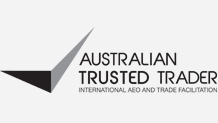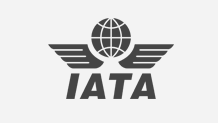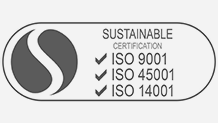Fracht Australia Logistics News - April 2024
1/4/2024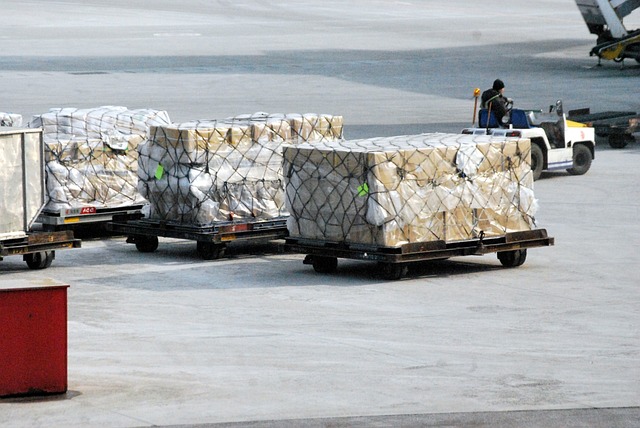
"You have brains in your head. You have feet in your shoes. You can steer yourself any direction you choose. You're on your own. And you know what you know. And you are the guy who'll decide where to go."
- Dr Seuss
AROUND THE WORLD
- RED SEA ATTACKS DRIVE UP WAR-RISK INSURANCE PREMIUMS. War-risk premiums may have increased by as much as 900% since the Houthi attacks on shipping in the Red Sea began. This is one of several troubling predictions in a United Nations Conference on Trade and Development (UNCTAD) report released recently. Meanwhile, journeys through the Suez Canal this year have dropped 42%, year on year, and via Panama by 49%, noted UNCTAD.
- US CONSIDERS POTENTIAL SANCTIONS AGAINST YEMEN FOR RED SEA ATTACKS. The US Federal Maritime Commission (FMC) is considering what retaliatory measures, if any, it can take against Yemen for the attacks on shipping from its shores. FMC commissioner Carl Bentzel said: “The attacks on US-flagged and all international shipping in the Red Sea are clear violations of the international law of the sea.” If it is formally determined that actions from Yemen cause “unfavorable conditions to shipping in the foreign commerce”, these measures would target vessels operating under a Yemen flag.
- FULL STEAM AHEAD FOR EURASIAN RAIL FREIGHT EXPANSION. Eurasian rail freight services continue to expand, as volumes between Azerbaijan and Iran surge and China, Kazakhstan and Russia plan a new hub. The director general of Iran’s North Railway Administration, Gholam-Hossein Valadi, told news outlets freight on the Iran-Azerbaijan line had climbed 28% in the 11 months to February.
- AUSTRALIA AND SINGAPORE FORMALISE MARITIME PARTNERSHIP and agree to collaborate on establishing a green and digital shipping corridor between the two countries. Federal transport minister Catherine King and her Singaporean counterpart Chee Hong Tat signed the memorandum of understanding on 5 March. Under the MOU, the countries plan to explore opportunities to develop zero or near-zero GHG emission fuel supply chains for the maritime industry, which would involve building necessary infrastructure, formalising standards and developing and implementing the training requirements. The MOU also covers a digital information exchange to speed up port clearance, port calls and the flow of vessels between Singapore and Australia.
- US EAST COAST PORT STRIKE threat prompts shippers to consider heading west instead. Cargo owners have been advised to make contingency plans for a strike at US east and Gulf coast ports that could hit traffic flows as early as 1 October, right in the peak shipping season. The six-year labour contract between the International Longshoremen Association (ILA) and United States Maritime Alliance (USMX), covering ports on the eastern US coastline, is set to expire on 30 September. The ILA represents about 45,000 port workers, while the USMX speaks on behalf of the terminal operators at 46 ports from Maine to Texas. The two sides started talks a year ago, but those stalled after only a few weeks.
- STRIKE PARALYSING FINNISH PORTS extended after talks collapse. The two-week strike by Finnish transport workers that has effectively shut down the country’s ports is set to enter a third week, after union members voted to extend the action until 1 April. Around 7,000 workers across the transport, industrial and electrical sectors, and including the AKT transport workers union, have been on strike since 11 March in protest at proposed labour reforms by the Finnish government.
- MAERSK SHIP DESTROYS BALTIMORE BRIDGE. The north-eastern US port of Baltimore is isolated from sea traffic after a powerless Maersk containership collided with a pylon of the Francis Scott Key Bridge, causing it to collapse into the Patapsco River. Despite earlier fears of mass casualties reports now indicated only eight bridge workers may have been caught up in the collapse, with six still missing. The 9,962 TEU (Twenty Foot Equivalent Unit) Dali, which had not long departed the Seagirt Marine Terminal on a voyage to Colombo on Maersk’s TP12 loop, was able to issue a mayday call that enabled police to block traffic at either end of the 1.6-mile bridge.
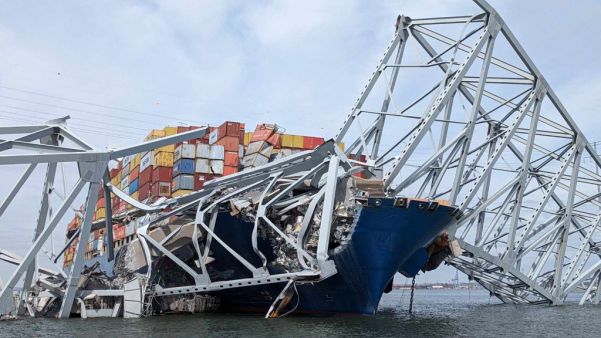
SEAFREIGHT NEWS
- CMA CGM POSTS ‘EXPECTED’ QR LOSS AFTER FREIGHT RATES TUMBLE. French transport and logistics group CMA CGM plunged into the red in the final three months of 2023, despite increasing its shipping volume, as freight rates on liner services tumbled. CMA CGM’s net income for Q4 contracted to a loss of $90m, compared with a net profit of $3bn the year before – however, for the full-year, the group still managed to produce a net profit, of $3.64bn, versus $24.9bn in 2022.
- CONCERNS OVER THE FLAMMABILITY OF ELECTRIC VEHICLES have flared again after revelations Mitsui OSK Lines and insurer Allianz are suing Volkswagen AG over the 2022 loss of PCTC Felicity Ace. The 2006-built, 5,232 CEU (Car Equivalent Unit) Felicity Ace was en route from Emden, Germany to East Coast North America ports in mid-February 2022 with close to 4,000, mostly upmarket vehicles, on board – including Lamborghinis, Bentleys, Audis, VWs and Porsches. Fire broke out when the ship was off the Azores and spread quickly through vehicle decks, forcing the crew of 22 to abandon ship. In their lawsuits the plaintiffs claim the fire originated in a lithium-ion battery fitted to a Porsche and spread quickly due to the prevalence of EVs on board and the uncontrollable nature of such blazes.
- ISRAELI CARRIER ZIM INTEGRATED SHIPPING SERVICES has turned in dismal results for Q4 2023 and the full calendar year. In figures released recently in Haifa Zim revealed a net loss for the fourth quarter of US$147 million (compared to a net profit of $417 million in the fourth quarter of 2022), and a net loss for the full year, including a $2.06 billion non-cash impairment loss, $2.69 billion (compared to a net profit of $4.63 billion for the full year of 2022).
- HAPAG LLOYD IN CHOPPY WATER AS VOLATILE MARKET SINKS PROFITS. Hapag-Lloyd ended 2023 with a net profit of just $3.2bn, compared with $18bn the previous year, as its average freight rate – on flat liftings of 11.9m TEU – plunged. Moreover, the German liner and terminals group fell into the red in the fourth quarter of last year, with an operating loss of $251m, as the average freight rate collapsed further.
- PANAMA SQUEEZE EASES as the Panama Canal Authority has opened up a few more daily transit slots as water levels gradually improve in the drought-stricken Gatun Lakes. “These measures allow the majority of vessels that want to transit the Canal to have a better chance of obtaining a reservation,” the authority said. The available daily slots will thus increase to 27 which, however, remain well short of the pre-drought quota of 36. It is, though, a substantial improvement on a February forecast of just 18.
- WALLENIUS WILHELMSEN HAS BUMPER-TO-BUMPER 2023. Global PCTC (Pure Car and Truck Carrier) and roll on / roll off operator Wallenius Wilhelmsen turned in record results in 2023, a year the company described as exceptional “financially, commercially, and operationally”. Releasing its annual report in Oslo late last week the company said the strongest financials on record were due to capacity constraints in the car carrier markets and general increased demand for cars and heavy equipment. The group delivered an all-time high EBITDA at US$1,807 million, up 18% from 2022. Total revenue was US$5,149 million for FY 2023, an increase of 2% compared to FY 2022.
AIRFREIGHT NEWS
- AIR CARGO DEMAND OUTPACES TRADE IN JANUARY. The International Air Transport Association (IATA) has reported the highest annual growth in air cargo demand since mid-2021. Global air cargo demand, measured in cargo tonne-kilometres, increased by 18.4% in January 2024 compared with the same month last year. Capacity was up 14.6% compared with January 2023. IATA attributed this increase to growth in international belly capacity, which rose 25.8% year-on-year on the strength of passenger markets.
- AIR CARGO HAS CONTINUED ITS STRONG START TO 2024, with volumes and rates cruising at high altitude even after Chinese New Year (CNY). In its recent analysis, Xeneta reported that February offered a second consecutive month of double-digit growth in demand, and an uptick in general freight spot rates. “Following January’s 11% growth in volumes, February saw a similarly welcome upward curve for airlines and freight forwarders, with demand increasing 11% year over year,” it said.
- AIR CARGO INDUSTRY CAUTIONED ON LITHIUM BATTERIES. The International Air Transport Association has warned that “rogue shippers” who disregard measures for sending lithium batteries are compromising safety. IATA highlighted the issues – and improvements – in transporting lithium batteries during the association’s18th World Cargo Symposium in Hong Kong. “Failing to declare lithium batteries in cargo or mail shipment, sending batteries which do not comply with UN test criteria, or not preparing the dangerous goods shipments in accordance with regulations compromises safety and it must be clear to all that the authorities will punish offenders.” Along with air cargo safety, IATA’s global head of air cargo Brendan Sullivan also explored efficiency, digitalisation, and sustainability.
- IATA MOVES TO CLEAN UP AIR CARGO’S ACT. IATA and the Smart Freight Centre (SFC) have partnered to provide consistent and transparent CO2 emissions calculations for air cargo shipments. The collaboration with the SFC Clean Air Transport Program will promote a common methodology in CO2 emission calculations and ensure accurate and consistent CO2 calculations are distributed to the industry’s biggest shippers and freight forwarders in air cargo, supporting them with pre-shipment and reporting purposes, the partners say.
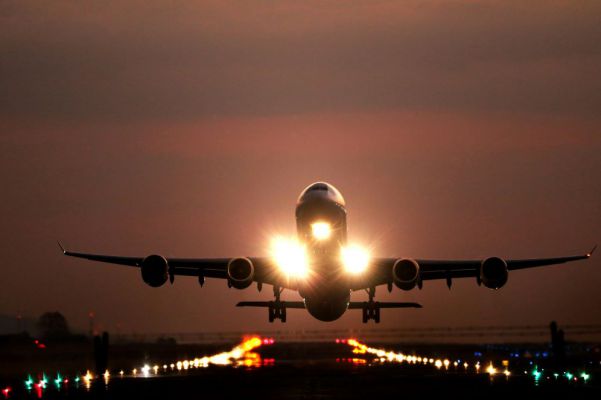
AUSTRALIAN PORTS
- THROUGHPUT AT PILBARA PORTS DOWN. Pilbara Ports has delivered a total monthly throughput of 58.2 million tonnes for January, but it was a 10% decrease compared to January 2023. The Port of Port Hedland achieved a monthly throughput of 43 million tonnes, of which 42.3 million tonnes was iron ore exports. It was a 12% decrease to total throughput compared to January 2023. Imports through the Port of Port Hedland totalled 146,000 tonnes, a decrease of 15% compared to January 2023. The Port of Dampier delivered a total throughput of 14.2 million tonnes, a 7% decrease from January 2023.
- ABEL SETS SIGHT ON TOWNSVILLE FOR METHANOL BUNKERING. Port of Townsville and Abel Energy have partnered on a plan to establish methanol bunkering facilities at the port. The bunkering facilities are part of Abel Energy’s plan to produce and export green methanol from a $1.7 billion manufacturing facility in Townsville. Abel Energy CEO Michael van Baarle said the Townsville project would seek to replicate the company’s flagship Bell Bay Powerfuels project in Tasmania.
- PROTESTS FLARE UP AT BOTANY AND MELBOURNE. Israeli container line Zim has again become the target of protests at Australian ports. On the night of 24 March, pro-Palestine demonstrators gathered at Patrick’s Port Botany terminal to protest the arrival of Ganges. There was a similar scene at the port of Melbourne on the evening of 22 March as protesters disrupted operations at Victoria International Container Terminal, according to the Container Transport Alliance Australia. Ganges departed Melbourne that night, bound for Sydney.
- PORT OF NEWCASTLE COMMITS TO PUBLISHING ITS NATURE-RELATED FINANCIAL DISCLOSURE. Global engineering, architecture and consultancy company Ramboll is working with the Port of Newcastle (PON) to help it measure, manage and mitigate its nature risks in alignment with the Taskforce on Nature-related Financial Disclosures (TNFD) framework. Biodiversity loss has been identified by the World Economic Forum as one of the most severe global risks. Ports in Australia can have impact on the natural environment due to their location and large geographical footprint as they are generally located in areas once considered to have low development value, such as estuaries, swamps, and wetlands, but which now have a very high conservation and biodiversity value.
CUSTOMER SERVICE
If you would like further information about any of the above items, please contact one of our friendly Fracht Team members at fracht@frachtsyd.com.au









